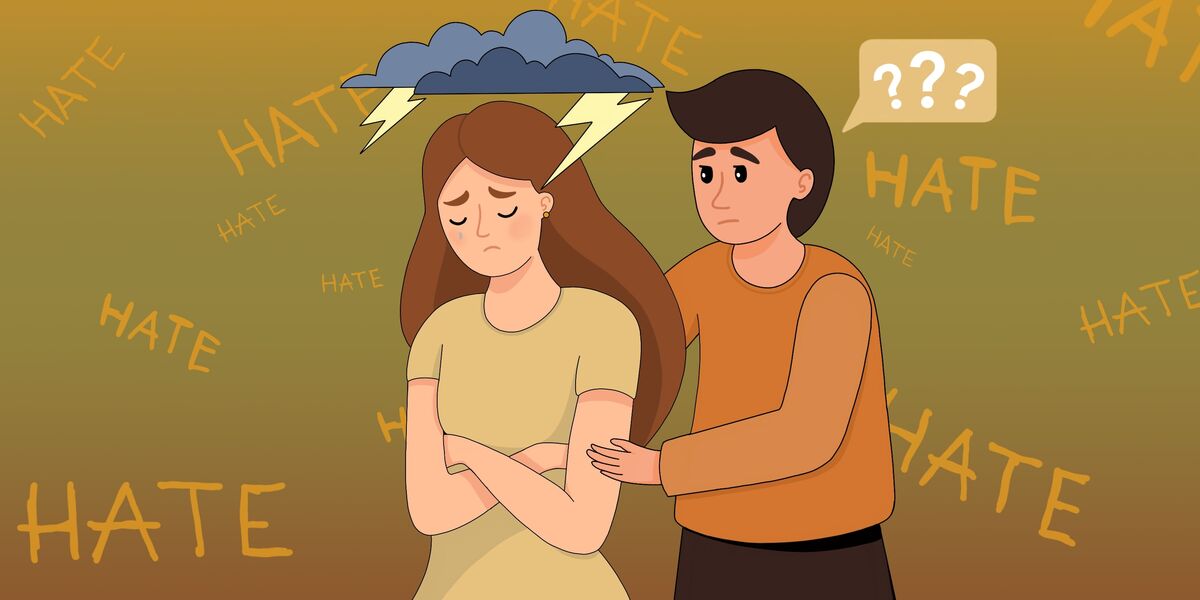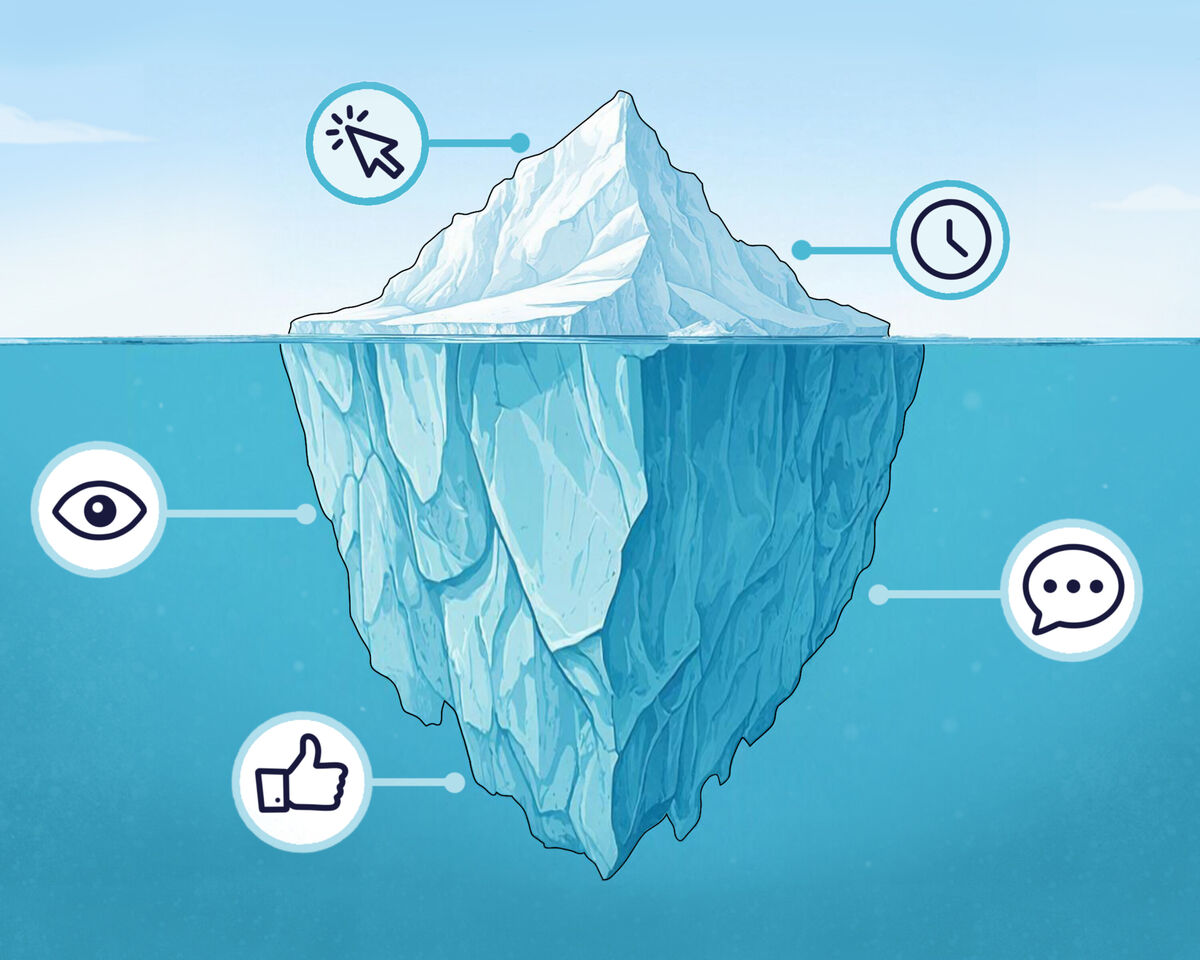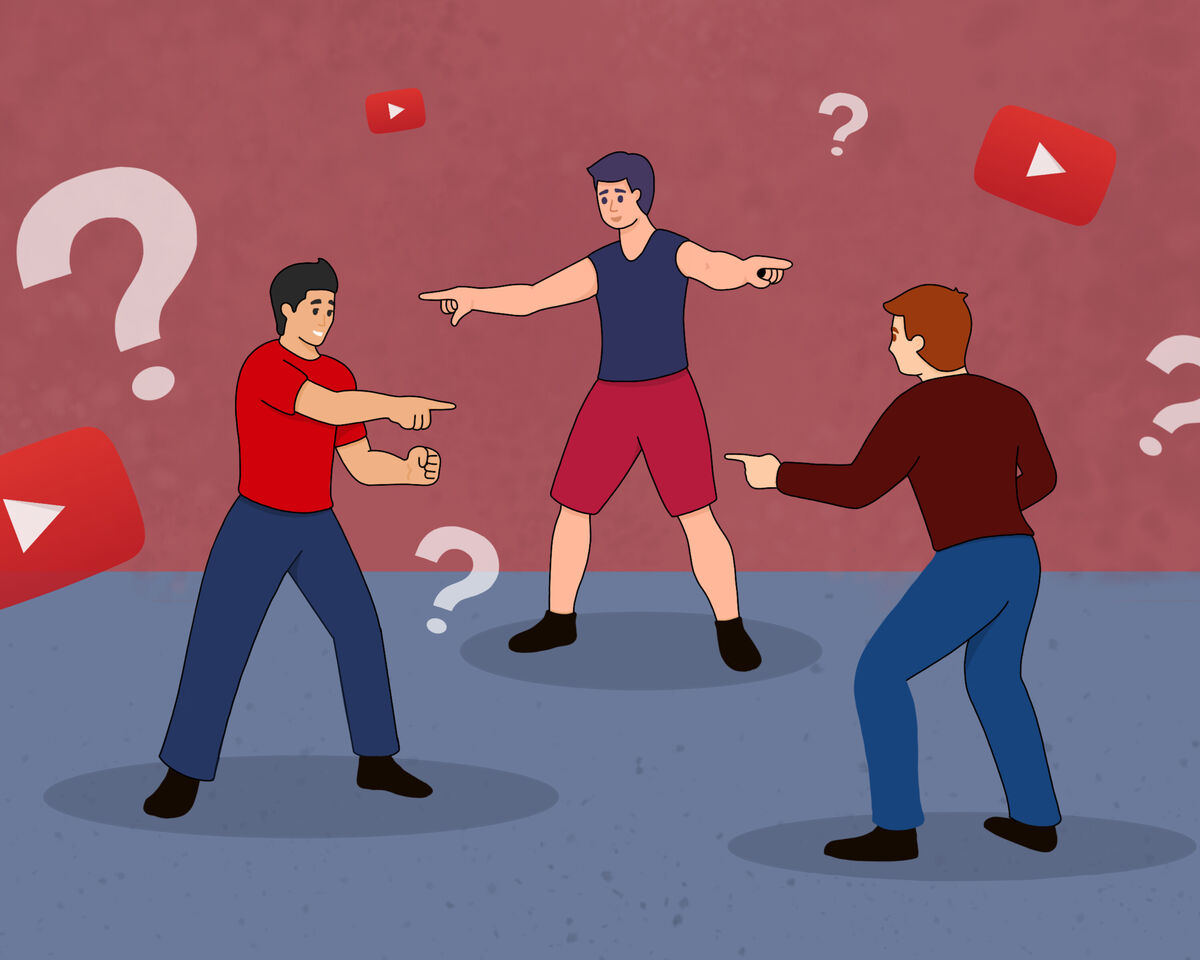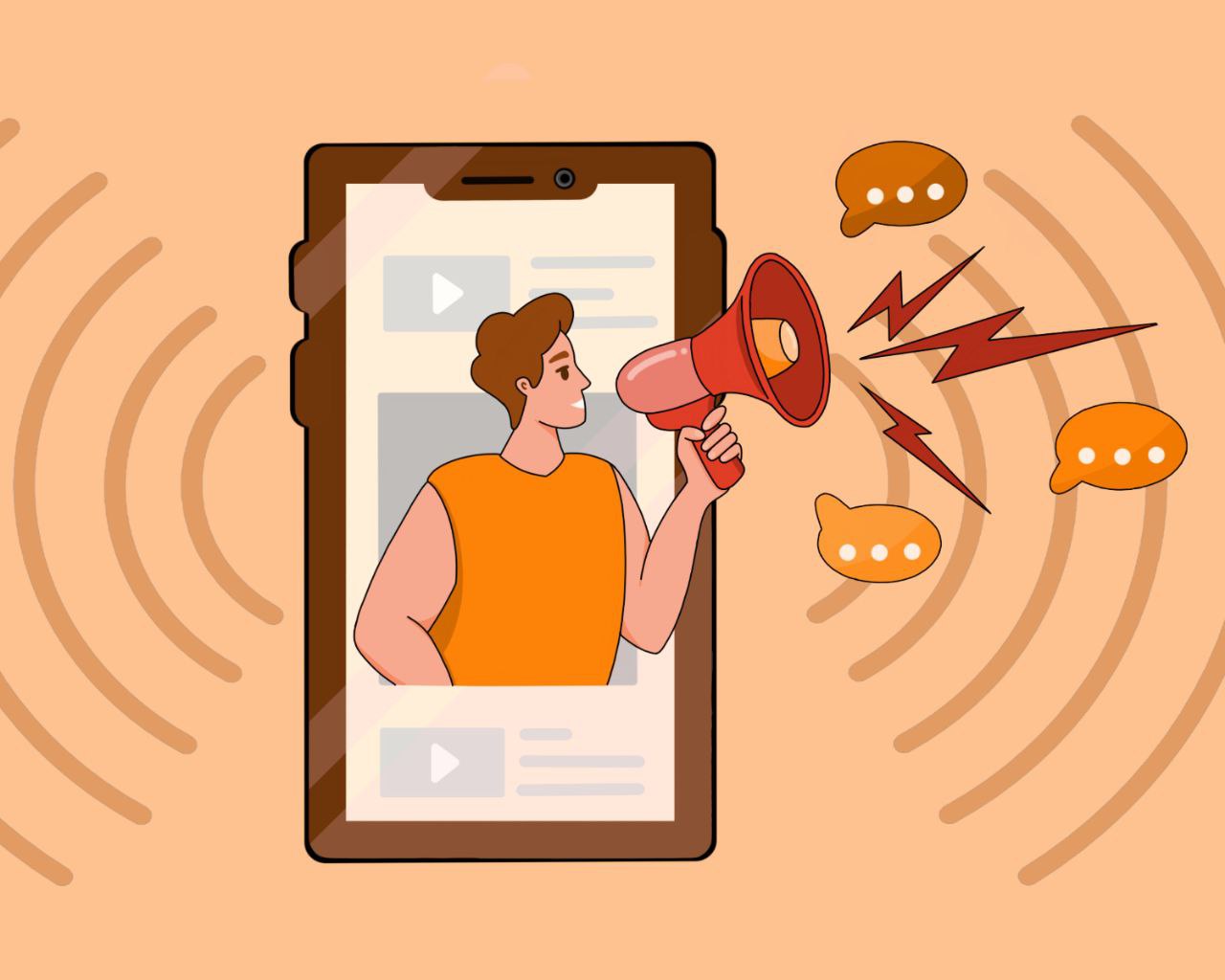Finding Strength in the Pause: A Blogger’s Guide to Getting Back on Track

We know how difficult it can be sometimes to overcome stagnation, to endure times when there are no views, no subscribers, when metrics are falling. How hard it is to go through a creative crisis, when your head has no ideas, and you don't even feel like working on your channel. How tough it can be to read hateful comments, especially if things aren't going well in your own personal life.
We've been through all this on YouTube ourselves, and that's why we want to share some small words of guidance and motivation that might help someone believe in themselves again.
"I feel like I'm the most terrible and boring creator on all of YouTube"
The main thing about such statements is that it only seems that way to you.
Let's think logically: if even a couple of people watch you, it means that for them you're already not boring or terrible. Not to mention situations where people subscribe to you, and views, even if slowly, are generally growing.
It's always worth remembering that all people are different, which means among them there will always be those who will love specifically you, your particular style and your content.
- You are the most interesting character for your viewers.
Viewers come to YouTube for personalities. What should you do if you think your personality is terribly boring, monotonous and uninteresting?
First: believe that viewers want to listen to you, they've already come and are watching your content, writing comments. They've already chosen you.
Second: read the comments under your videos and assess how much positivity is already there, and you haven't even tried that hard yet, since you're scolding yourself for being boring.
Third: people on the platform are attracted to the emotions and energy that you share in your videos. If you sincerely want to engage in this exchange, then you don't need to worry that something is wrong with you. Your only task will be to patiently wait and search for your people who will connect to this exchange system.
- Don't be afraid to express yourself.
Even if at first it seems like you're doing something nonsensical, even if you hate yourself on camera, you find yourself funny, stupid, and awkward. Remember that this might strongly resonate with someone, because we can't get inside other people's heads and understand how they perceive us. We only have our own opinion, which often differs greatly from the opinions of people around us.
After some time, thanks to feedback, you'll also be able to see yourself from a new perspective, with fresh eyes, and be proud of what a big and important step you took despite your insecurity.
But for your audience to feel you, start talking to the camera as you would actually talk to them. Stop perceiving the camera as a soulless object, and sound as if your subscribers are right in front of you.
But if this is difficult for you, and you're afraid of public speaking, then imagine just one friend you're talking to. Think about how you would convey information to them. This is that safe comfort zone for everyone, where you'll always find understanding, and the conversation will take on a pleasant tone. It's important that this friend also watches your channel, then the feeling of communication will be real. You'll understand that your friend will actually see this video.
- YouTube is a unique platform, and people come here for a sense of personal connection, eye contact.
We truly believe that you won't find such opportunities anywhere else to share your views and interests and, among billions of people around the world, have a chance to find those who will become your like-minded supporters.
Just think about it — you have more than two billion, or better put like this to make it more visible, more than 2,000,000,000 chances to find those who will become your like-minded supporters and will support you on your blogger journey. You will be valued simply for being you, simply because these specific people will feel comfortable and happy in your company.
- Not everyone is comfortable being on camera
You still have your own voice, you still have your personality.
Whether you're on camera or not — you put your own thoughts and feelings into the content. Your character can be expressed not only in how you behave on camera, but also in how you work during editing, what music you choose, how you structure the plot of your videos — all of this is self-expression.
"Haters write nasty things to me, but I haven't done anything to them!"
First of all, stop wondering why they write nasty things to you. There's no need to look for a cause-and-effect relationship here, because haters write nasty stuff not because of you, but because of themselves.
No matter how the criticism is presented, even if the person says it's for your own good—it's nonsense, because you didn't ask for this criticism.
And yes, for those who believe that writing a constructive comment filled with hate isn't hate—we might shock you now, but it's still hate. If you want to give advice to the author and you think it will be beneficial, and you are doing it purely out of good intentions—ask the author if they want to receive this advice.
But that requires a certain level of awareness. More often than not, trying to explain to such people that they are acting rudely and impolitely is a waste of time, and we, as content creators, don't have much time to spare, so we recommend not wasting it on haters.
Sure thing, ignoring negativity is very difficult, but if you absolutely feel the need to respond, here are three response options that we use:
- Positive: Thank you for writing and taking the time to comment, you're boosting the engagement on my channel!
- Neutral: Thanks, noted. (Or: Thanks, I'll keep that in mind.)
- Sarcastic: You don't say? Impossible! And I never would have guessed.
Of course, everything depends on the situation, the specific hateful comment, the author themselves, and frankly, their mood.
You are always free to simply ban the person and forget about their existence altogether. You shouldn't regret losing a viewer/commenter this way; we highly doubt these comments are worth sacrificing your mental peace.
You can also ask why the person wrote that. They will either respond even more inappropriately, or simply remain silent. But from experience, we can tell you that a vast number of haters, as soon as you try to find out the reason for their comment, instantly change their tune and turn into perfectly lovely people who "didn't mean anything bad."
There's only one conclusion here: take haters less seriously; they write not because of you, but because of their own complexes, attitudes, and stereotypes.
Okay, you've reached the point where you've realized and accepted the fact that some people don't like your content. What's next?
It's great that you've come to this realization, but the next step is to accept that someone in this huge world will inevitably disagree with what you do. Some people won't like the information you present; others will consider you strange or goofy. Some will judge you for your choice of clothes, your narrative style, voice, teeth, a mole on your fifth vertebra, the presence of tattoos, the absence of tattoos—basically, you get the point.
You will inevitably be disliked by someone. Sometimes even people close to you will find your content and your on-camera behavior strange. And that's also normal, because you are doing something unfamiliar to them, revealing a different side of yourself, and change and stepping out of the usual comfort zone are always scary. Furthermore, it's a long-observed phenomenon that change often scares other people even more than it scares us.
Not to mention people you don't know, who are emboldened by internet anonymity and can shamelessly hate you aloud just because you turned out to be braver than they are.
But there are those in the world who are looking for you and your content, those who will love you and your content a priori, and the only problem is that you haven't met this part of the audience yet.
We know a proven way that will easily help you meet your like-minded people faster—it's, Prodvigate!
We take control of the complex process of promoting videos and channels and make it accessible to users. Prodvigate is an official Google partner and uses Google Ads only.
But let's return to our main topic. And next up is this question:
“What should I do if I’m burned out or feel like I’m about to burn out?”
Firstly, give yourself a break. And the faster you do this, the greater the chance that you will avoid burnout.
And secondly, let's figure out what this condition actually is. The almighty Internet will tell us what burnout is from a psychological point of view.
Burnout is the result of chronic work-related stress, where a person sees no meaning in their work, feels ineffective, apathetic, and begins to avoid their professional responsibilities.
Sounds familiar, doesn't it? If you've opened this article, you've likely experienced not wanting to create content for your channel, not wanting to sit down for that dreaded editing, not even wanting to open the comments under your videos anymore to reply to them.
So why does burnout happen? In reality, there are a number of reasons, and essentially, they all stem from one another:
- You’re setting goals that are beyond your ability.
And it’s all because of that classic idea about YouTube, usually voiced by people who don’t even work here: 'Being a YouTuber is easy—just have fun filming and rake in millions.'
That mindset got stuck in our heads (and in the heads of those around us) because the media only ever talks about creators who seemingly became rich and famous overnight. But here’s the catch: these are just survivorship bias stories. The creators who grind for years to reach their goals? Way too boring for the headlines.
And since there’s still a strong appetite for scandalous success stories, we have to accept that those 'overnight sensations' are rare exceptions. They exist—no one’s denying that—but they’re so rare that they end up everywhere in the media, shaping this false image that being a creator is easy, fun, and instantly profitable.
Because of all that, we, as creators, start expecting the impossible from ourselves. Like—that guy gets a million views per video just by lip-syncing to music, and I spent a whole month making a research-based documentary… and only my mom praised it.
Sometimes our ideas feel massive and epic in our heads, but the final result ends up being something totally different. Should you beat yourself up over that? Absolutely not. What you create reflects who you are—your experience, your knowledge, and your skills.
Everything comes with experience, trial, and error. Don’t demand masterpieces with millions of views from yourself after just a month, or even six months, or a year on YouTube. Do what’s within your capacity and aim for progress—not burnout, and not a race against someone else’s success.
- Lack of feedback from viewers
Let’s take a moment to remember why we even came to YouTube in the first place. Was it really just for the likes and subscriber counts?
The problem with this question, as we see it, is that it's a result of all the expectations we’ve built up in our heads: those other creators have better content and more engaged audiences, I should have a million subscribers already, and other absurd ideas that just don’t match reality.
Yes, we live in the age of “achievement culture,” where we’re constantly told that success is easy and the only reason we’re not successful is because we simply didn’t try hard enough. But that’s not true. Most of the people pushing this narrative are children of successful parents, and the few who really did make it on their own are perfect examples of survivor bias.
This doesn’t mean you can’t be successful — it just means that thanks to this “hustle culture,” the idea of success has been distorted to revolve solely around those magic millions. But only you can define your own version of success.
Try not to let thoughts like “I absolutely need millions of views and subscribers” live rent-free in your head. Ask yourself: what’s your real goal here?
If you want to build a successful business and sell your products or services, those millions won’t matter if they’re not your target audience — the people who actually want to buy from you.
So, to avoid burnout and disappointment in the early stages of your channel, throw away those toxic ideas of “success” being only about numbers. Set realistic goals: 10 views or 5 comments in a week. And as your channel grows, gradually raise the bar for what “success” looks like to you.
Growing on YouTube without ad boosts is slow, hard, and time-consuming. There are no shortcuts and no legal “fast tracks.”
The more you believe info-gurus, the more you chip away at your own confidence. The more you count on random luck, the more disappointed you’ll feel with how your channel is progressing.
The best thing you’re doing for yourself right now — is reading this article. Because you care about the kind of creator you want to be, because growth matters to you. Right now, you could be gaming, reading, going for a walk (and those are all important things too), but instead, you’re here — dedicating time to your channel.
And that is true success — you’re working on yourself, for yourself.
“Is a stagnant channel the end?”
No, there are a million reasons why you’ve ended up in a rut—and that means there are also a million ways to get out of it.
The first one, which many people don’t like, is to simply give yourself a break and change your surroundings—go on vacation, for example. Because if you don’t do this now, there’s a good chance you’ll circle back to burnout.
Stagnation happens on growing channels about every six months. Of course, that number is just an estimate, but let’s go with it. Not only is it normal—it’s also, in our experience, a sign that you’re about to grow.
If the stagnation isn’t due to seasonality (i.e., your viewers haven’t just gone off to summer cottages or vacations), there’s a high chance that they’re simply tired of your content. That doesn’t mean you’re boring, or that your content isn’t worth watching. It’s completely normal across all media industries.
Back in 2008, the first Marvel movie, Iron Man, was a sensation. It turned millions of people into franchise fans, and superhero stories kept them hooked for a decade. But eventually, people get tired of the same delivery format.
Marvel’s movies all followed the exact same formula. People didn’t get tired of the characters or the genre—they got tired of the formula.
So, in moments like this, don’t ditch your channel’s topic or throw away years of work—think about changing your delivery format. That means you, the creator, will have to step out of your comfort zone and grow.
To step out of your comfort zone, deliberately do things that push your limits. In fact, set a goal every six months to go beyond what you think you can do. If you do that, you may never even feel what stagnation is.
What does it mean to step out of your comfort zone?
If you’ve always filmed in quiet, empty places—try shooting somewhere more crowded: near a bus stop, or on a pedestrian island.
Of course, you don’t have to do that—it’s just one example. Everyone has different niches. How does a gaming channel shoot on the street? And why would it? But a gaming creator could still do something extraordinary in their world: collaborate with a well-known YouTuber, or reach out to game developers to propose a partnership.
It’s all up to you. Use your imagination.
Stagnation often comes from using the same tricks over and over. Maybe they’ve stopped working. You need to let yourself—and your channel—grow and evolve with you.
But there’s another side to this growth.
You can’t keep your channel at the same level forever.
Because you are constantly growing. And your channel should grow too. If you started with simple prank vlogs at 15, three or four years later you might not be into that anymore. And to avoid losing both your passion and your audience, you’ll need to evolve your content—especially in comedy.
Maybe that means writing smarter sketches, developing actual scripts. Your audience grows with you—don’t forget that.
At 15, you talk to 15-year-olds. But they’ll be 19 or 20 someday too. Their humor and entertainment needs will change over time.
You’ve probably seen or even written comments like “I grew up on your videos, thank you.” Imagine how powerful it would be to get a comment like that in 5 or 10 years—to know you were a role model, and that your audience grew and evolved with you.
But if you want to keep being a creator, you have to accept that your interests—and your audience’s—will keep changing. Let those changes happen. Don’t box yourself into one topic. Think about how to transform what was into what is.
Honestly, we could keep motivating and encouraging you forever, because we’ve got a million reasons why you are an amazing and interesting creator.
So let’s turn theory into action.
Open your oldest videos, and today—no self-hate. Watch them, feel the nostalgia, and praise yourself for how far you’ve come and how much you’ve learned!




